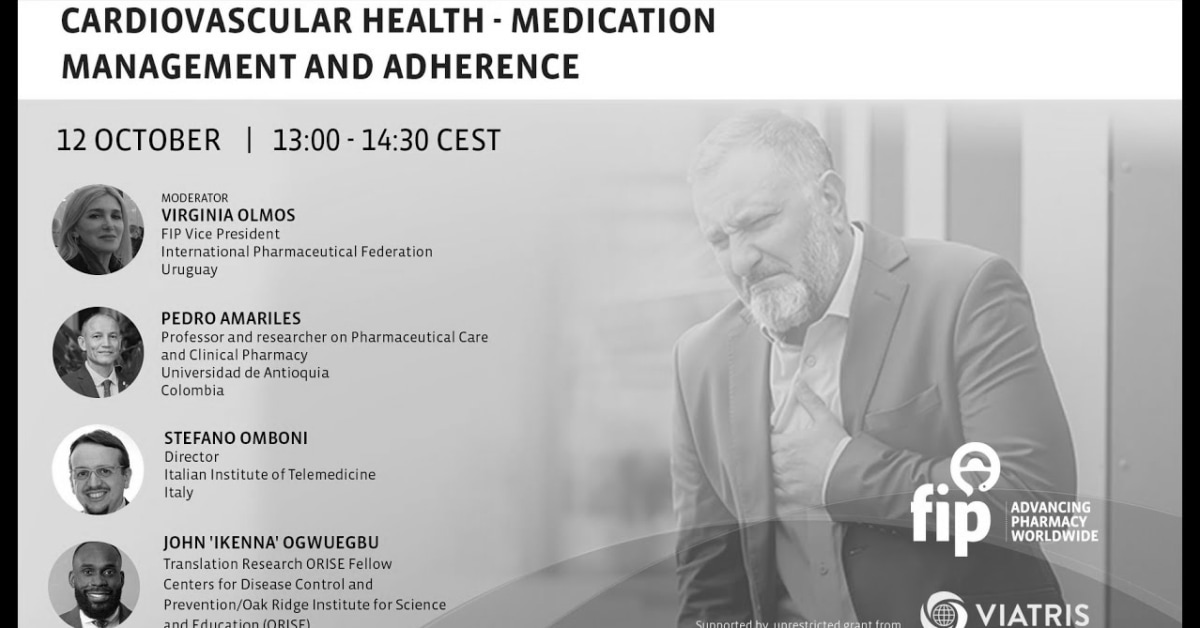
Welcome to our article on medication management for preventing cardiovascular diseases! In today’s fast-paced world, it is easy to forget the importance of taking care of our health. However, cardiovascular diseases are one of the leading causes of death globally. Fortunately, with proper medication management, we can significantly reduce the risk of developing these diseases. In this article, we will discuss the essential role of medication management in preventing cardiovascular diseases and how it fits into routine medical care. Whether you have a family history of heart disease or want to maintain a healthy heart, this article is for you. So, let’s dive in and learn more about how medication management can benefit your overall health.To understand the importance of medication management in preventing cardiovascular diseases, let’s first look at what these conditions are. Cardiovascular diseases refer to a group of disorders that affect the heart and blood vessels. Some of the most common types include heart disease, high blood pressure, and heart failure. These conditions can lead to severe consequences, such as heart attacks and strokes, which is why it’s essential to take preventative measures. Did you know that cardiovascular diseases are the leading cause of death globally? It’s a serious health concern that affects millions of people every year. The good news is that there are ways to prevent these conditions, and one crucial aspect is proper medication management. In this article, we will discuss everything you need to know about medication management to maintain a healthy cardiovascular system and prevent serious conditions like heart disease, heart attacks, and strokes.
What is Medication Management?
Before we dive into the specifics of medication management, let’s define what it means. Medication management involves the proper use and monitoring of medications prescribed by a healthcare professional. It includes keeping track of your medications, understanding their purpose, and following the prescribed dosage and schedule.
1. Keep an Updated Medication List
Creating a list of all the medications you are taking, including the name, dosage, and schedule, can help you keep track of them and ensure you don't miss any doses.
2. Understand Your Medications
It’s crucial to understand why you are taking each medication and its purpose. If you have any doubts or concerns, don’t hesitate to ask your healthcare provider.
3. Stick to Your Prescribed Schedule
Following your medication schedule is essential for its effectiveness. Set reminders or use pill organizers to help you remember to take your medications on time.
How Does Medication Management Help in Preventing Cardiovascular Diseases?
Now that we know what medication management is, let’s discuss its role in preventing cardiovascular diseases. Proper medication management ensures that patients take their medications correctly, which can help control risk factors for these conditions. For example, taking blood pressure medication can help lower high blood pressure, reducing the risk of heart disease.
4. Don’t Skip Doses
Skipping doses can disrupt the effectiveness of your medication and increase the risk of developing cardiovascular diseases. If you forget a dose, take it as soon as you remember or consult with your healthcare provider for further instructions.
5. Be Honest with Your Healthcare Provider
It’s crucial to be honest with your healthcare provider about any medications you are taking, including over-the-counter drugs and supplements. This information can help them determine the best treatment plan for you.
Tips for Proper Medication Management
Proper medication management is crucial for maintaining a healthy cardiovascular system and preventing serious conditions like heart disease, heart attacks, and strokes. Here are some essential tips to help you manage your medications effectively:
- Follow your doctor’s instructions: It’s important to take your medication exactly as prescribed by your doctor. This includes the right dosage, frequency, and duration of treatment.
- Keep track of your medications: Create a list of all the medications you are currently taking, including the name, dosage, and purpose. This will help you stay organized and avoid any potential drug interactions.
- Use a pill organizer: This can be especially helpful if you are taking multiple medications throughout the day. A pill organizer will ensure that you take the right medication at the right time.
- Set reminders: You can use alarms or smartphone apps to remind you when it’s time to take your medication. This is especially useful if you have a busy schedule.
- Store your medications properly: Follow the instructions on the label for storage and always keep your medications out of reach of children and pets.
- Communicate with your doctor: If you experience any side effects or have trouble sticking to your medication regimen, talk to your doctor. They may be able to adjust your treatment plan or provide additional support.
By following these tips, you can ensure that you are managing your medications effectively and reducing your risk of developing cardiovascular diseases. Remember, proper medication management is an essential part of maintaining a healthy heart and preventing serious conditions.
4. Don’t Skip Doses
Skipping doses can disrupt the effectiveness of your medication and increase the risk of developing cardiovascular diseases. If you forget a dose, take it as soon as you remember or consult with your healthcare provider for further instructions.
4. Don’t Skip Doses
Skipping doses can disrupt the effectiveness of your medication and increase the risk of developing cardiovascular diseases. If you forget a dose, take it as soon as you remember or consult with your healthcare provider for further instructions.
In conclusion, proper medication management is vital in preventing cardiovascular diseases and maintaining a healthy heart. By keeping track of your medications, understanding their purpose, and following your prescribed schedule, you can effectively control risk factors and reduce the risk of developing these conditions. Remember to consult with your healthcare provider for any concerns or questions about your medications.